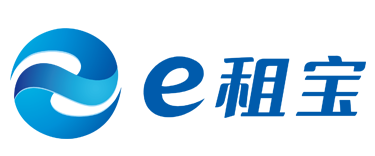Chinese police have arrested 21 people in connection to the operation of online lending platform Ezubao, the state-owned Xinhua News Agency reported Monday, over allegations that it defrauded 50 billion yuan ($7.6 billion) in funds from 900,000 investors.
The company, created in July 2014 by Anhui-based Yucheng Group, was put under investigation in 2015 after authorities suspected it for conducting illegal activities at the latter end of the year, said Xinhua.
Ding Ning, the chairman of Yucheng Group, was among those arrested on Jan. 14.
Yucheng and its affiliates were discovered to have insufficient cash flow to operate normally as of Dec. 5, the police said a statement, adding that the company has already transferred some of its capital and destroyed certain evidence. Senior company executives have also been reported to have fled.
"Ezubao is a Ponzi scheme," said Zhang Min, a former senior executive at the company. According to Xinhua, over 95 percent of the projects on the platform were fake. Instead the platform, which claimed to focus primarily on finance and leasing solutions, operated as a third-party payment channel that absorbed capital illegally.
Investors were drawn in to Ezubao's high returns. The platform offered six investment products, whose annual interest rates ranging from 9 percent to 14.6 percent were far higher than for similar products offered by banks, the report said.
"One of the company's employees told me that I would get the principal of my investment and my interest, despite the failure of the project," an investor surnamed Zhang was quoted by Xinhua.
Other investors cited Ezubao's flexibility, including the ability to withdraw money in advance.
According to investigators, a "considerable proportion" of the money taken from investors was spent on maintaining lavish lifestyles of senior officials and for company operations, including fueling the hype about its products.
Ding spent more than a billion yuan on properties, cars and luxury goods, the report said. A huge chunk of money was also spent on salaries of the company's top executives. Ding's brother, Ding Dian, had an initial salary of 18,000 yuan that rose to a million yuan per month, while other Yucheng employees received paychecks surpassing the million-yuan mark. In November alone, the company issued a total of 800 million yuan in paychecks.
The report also revealed that more than 100 million yuan was spent on advertising since 2014 and, in order to maintain a good reputation among investors, a lot of money was spent of luxury clothing for Ding's female subordinates.
According to Ding, the money used on Ezubao was spent to cover operational costs for the company's other assets.
The intention to spend the money for themselves constitutes crimes of illegal use of public funds and fundraising fraud, said Guo Hua, a law professor at the Central University of Finance and Economics.
Chinese police said they have sealed, frozen and seized the assets of Ezubao and its linked companies.
The Ezubao case has highlighted the risks created by China's fast growing $2.6 trillion wealth management product sector, according to a Reuters report. Many products sold in the country are loosely regulated, including those of financial investment platforms and privately run exchanges.



























